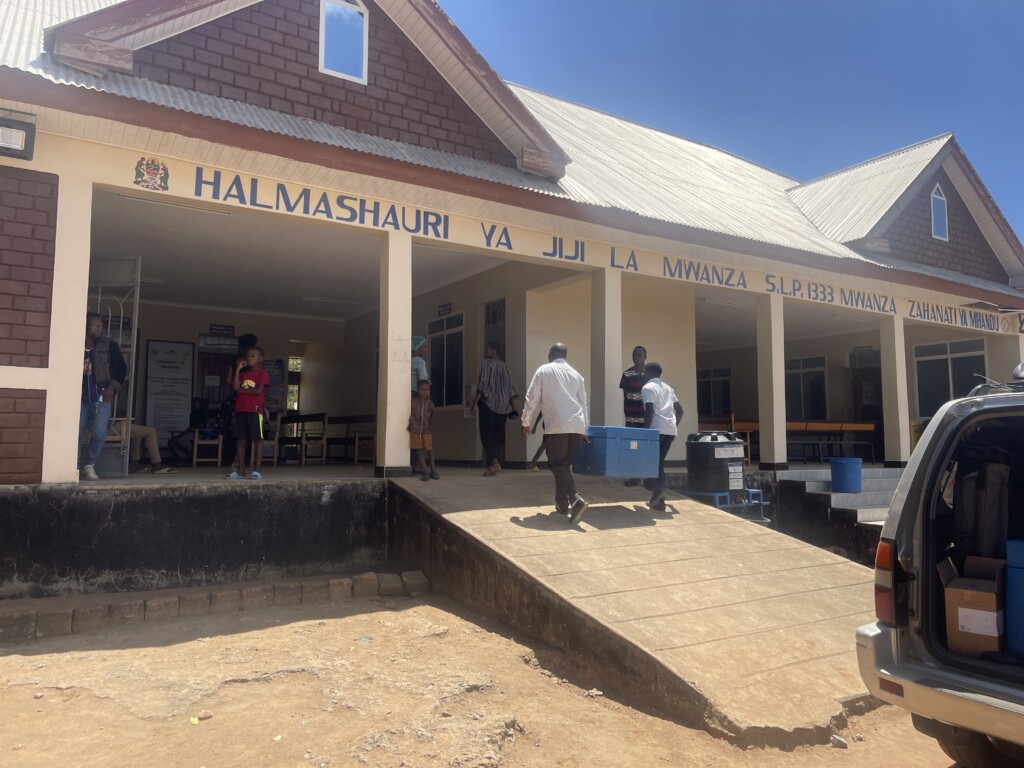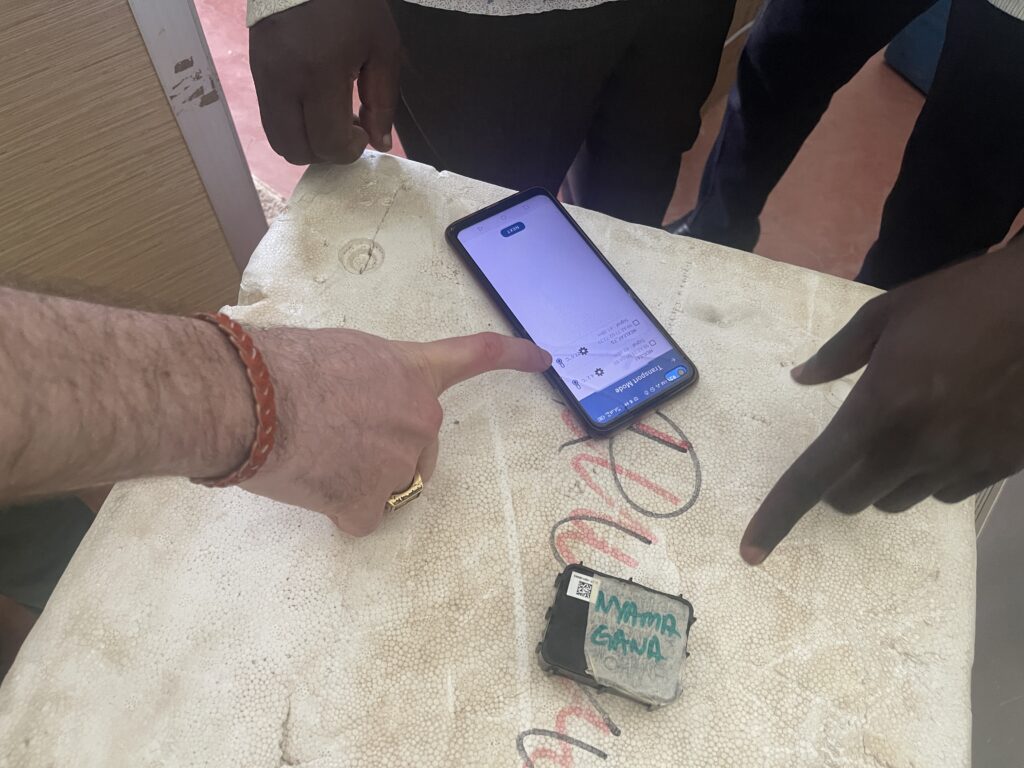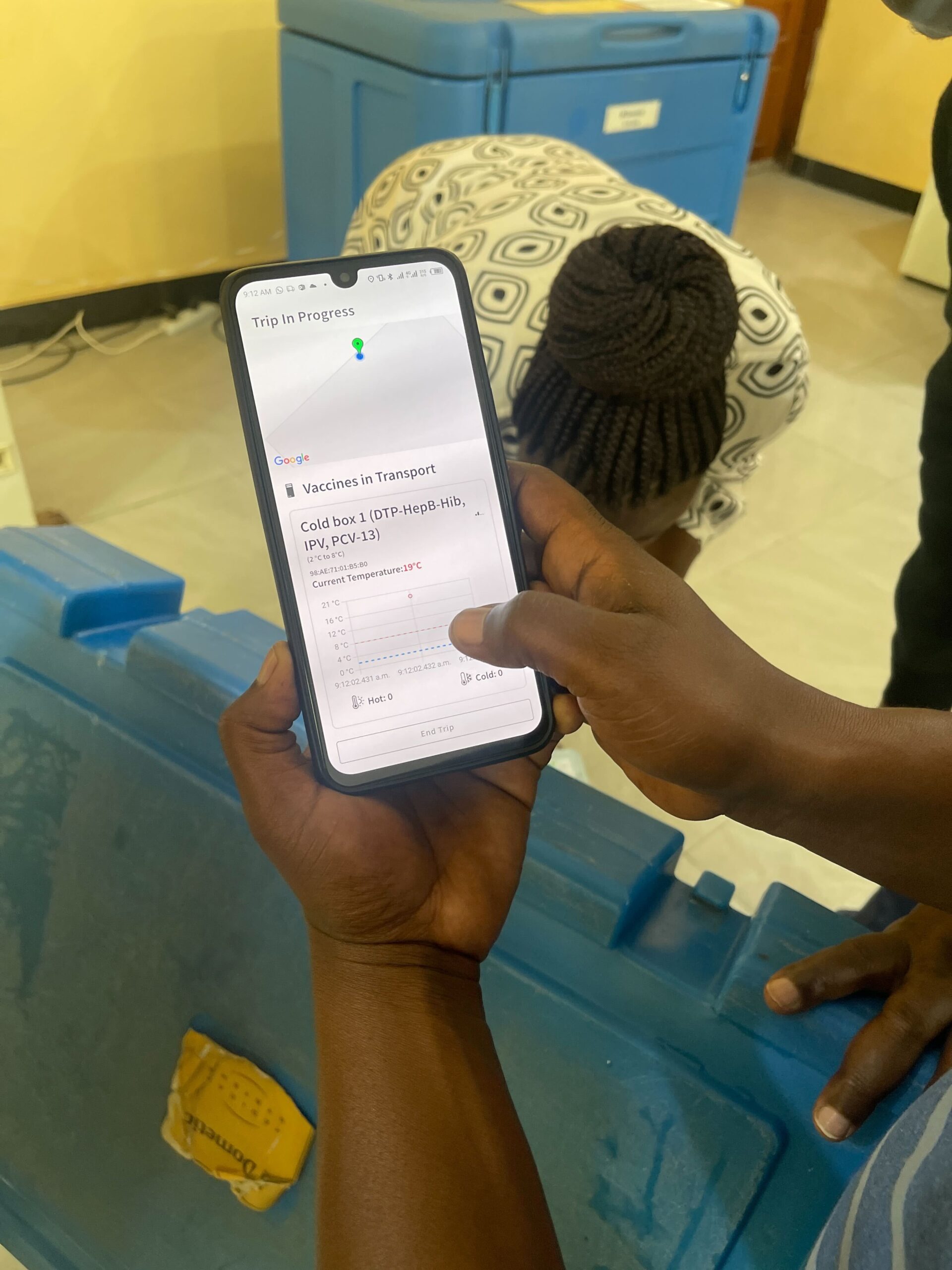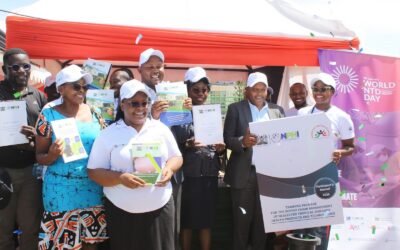
The journey from vaccine manufacturing to patient inoculation is a critical pathway in which even minor temperature fluctuations can compromise the vaccine potency. To address vaccine temperature challenges during distribution, the Vaccine Transportation Temperature Monitoring (Trek) project embarked on a pilot study in Tanzania to explore the use of routine temperature monitoring devices to safeguard vaccine potency during distribution. Implemented by JSI, inSupply Health, Nexleaf Analytics, and the Tanzania Ministry of Health through the Immunization and Vaccine Development (IVD) Program , the Trek project sought to improve vaccine transportation through the use of Bluetooth-enabled data-logging devices.
One vital aspect of vaccine distribution is ensuring the potency and effectiveness of the life-saving doses throughout the supply chain. To address this temperature variability concern, the Trek project introduced Bluetooth-enabled data logger into the distribution process. These Trek devices, working seamlessly with an Android Cold Trace mobile application, provide real-time monitoring and recording of temperature and location data throughout the vaccine journey. By providing a continuous stream of data, the Trek devices equip stakeholders with information to make informed decisions in real time, ensuring that vaccines are maintained at optimal temperatures during their journey from the central store to their final destination.
The pilot phase of the project covered 10 strategically chosen districts within Tanzania, which encompassed four districts drawn from the Mwanza region and six from the Geita region. The selection process for these pilot districts considered various factors, including the representation of urban-rural settings, the inclusion of hard-to-reach facilities, the presence of islands within the regions, the need for alternative transportation methods such as boats, and the existence of IMPACT Teams (IT) responsible for regular cold chain data review at both the district and regional levels.

The pilot phase revealed a range of challenges, achievements, and insights, underscoring the necessity of continuous improvement in vaccine distribution systems. In the beginning, the Android Cold Trace mobile application experienced repeated crashes during vaccine transportation, posing a risk to the monitoring process. This issue prompted an application update, ensuring a smoother and more uninterrupted data collection process. Smartphone battery drainage emerged as another issue, which was due to the Bluetooth connectivity between Trek devices and the Android Cold Trace mobile application. This posed the risk of incomplete data collection during longer transportation journeys. The project team, in collaboration with vaccine officers, devised strategies such as disabling non-essential applications and introduced an updated Trek device using Bluetooth Low Energy Version 5. Furthermore, inefficient vaccine packing practices prompted the Ministry of Health and its partners to revise the Standard Operating Procedure for packing vaccines, ensuring adherence to temperature guidelines.
In the face of these challenges, the pilot phase achieved several milestones that underscore the viability of the Trek project’s approach. Vaccine officers expressed high levels of satisfaction with the Trek devices, particularly highlighting their confidence in the temperature monitoring feature. The real-time alerts proved instrumental in making informed decisions during distribution, such as exchanging cooling packs to maintain optimal conditions. Moreover, the data generated by Trek devices provided essential information for planning distribution trips, optimizing resource allocation, and fostering accountability among stakeholders. All this success is rooted in collaboration and knowledge sharing facilitated through a WhatsApp group that cultivated a vibrant community of practice. Also, incorporating Trek data into the agenda of IMPACT team meetings enhanced the collaborative framework that ensured insights drawn from Trek data could be immediately translated into actionable measures, further enhancing the efficiency of vaccine distribution practices.
The pilot phase of the Trek project underscores the crucial role of regular temperature monitoring in the distribution of vaccines. Its success stems from a synergy of technological advancements, collaborative efforts among stakeholders, and a commitment to data-driven decision-making. This initiative showcases the flexibility of existing distribution networks to integrate new technologies, providing insights applicable not only to vaccine distribution but also to other sectors. The Trek project serves as an exemplar for the phased integration of technology into well-established systems, highlighting the importance of continual enhancement, mutual learning, and strategic alliances in achieving positive results. As we tackle the challenges of vaccine distribution, initiatives like Trek lead the way towards a future where innovation and data amalgamate to protect public health.

The Android Cold Trace mobile application showing real-time monitoring and recording of temperature and location data.


